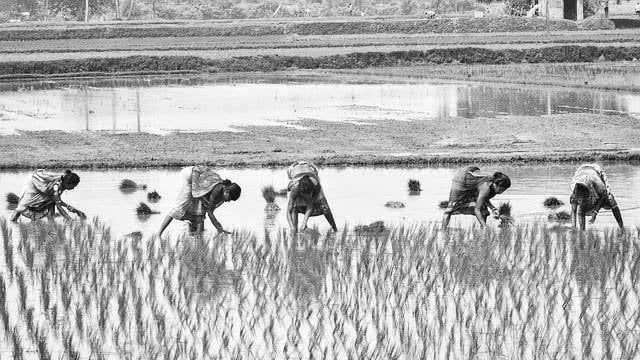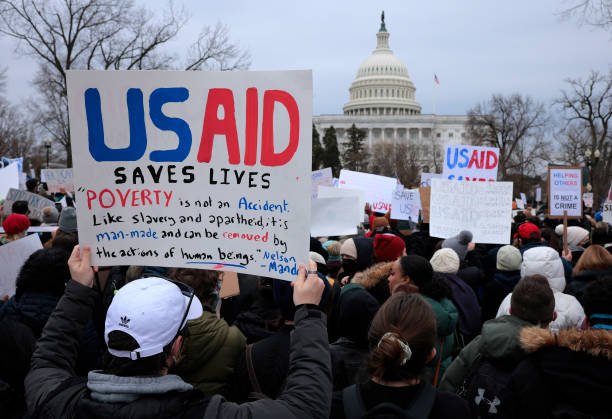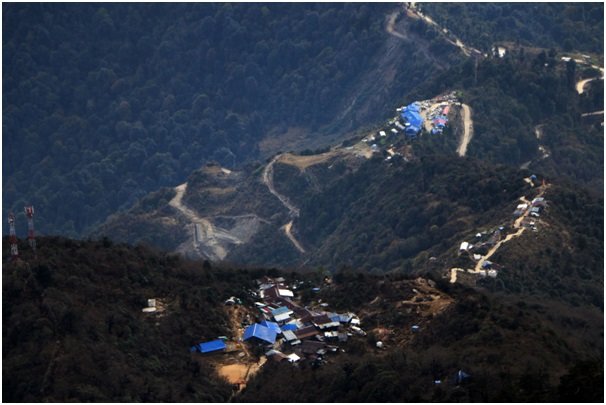Corporate Control and Agriculture

The dilemma of present agriculture production often revolves around the debate of ‘Productivity versus Sovereignty’. In the periodic plans formulated by the government, often the terms that get repetitive usage include ‘food security’, ‘food sovereignty’, ‘improved production’, and ‘economic growth’. But does fueled economic growth ensure sustainability? Is it not evident that the spread of wealth is non-uniform, and that the richest few people in the world account for more wealth than that owned by the rest of the global population? When it comes to disparities regarding profits and income, the agricultural sector hasn’t been any different. Throughout history, humans have been more inclined to make lucrative choices instead of sustainable ones, whose consequences are only visible long after the choices have been made.
To sustain the burgeoning global population, various interventions have been done in the field of agriculture that aim on increasing food production. One such endeavor is the Green Revolution of the 20th century, which changed the fate of farmers and the farming that they do with their crops. The green revolution, despite its contribution to improving global food production and alleviating hunger and malnutrition, is still criticized on account of the threats imposed upon the environment and biodiversity, and for the economic growth attained by rich farmers keeping on stake the well-being of poor ones. Over the decades following the green revolution, many multinational companies have built their empires on the foundation laid by the very revolution. One such company is a US-based agricultural and biotechnology company named Monsanto (now acquired by a German pharmaceutical and pesticide company ‘Bayer’). Companies such as Monsanto and Bayer themselves produce chemical fertilizers to fuel the growth of the hybrid as well as genetically modified seeds they produce and distribute. In addition to that, the companies also impose upon the user farmers, herbicides and pesticides without the use of which, the perceived high-yielding seeds perish in the face of weed and pest infestation. The list of products goes on and on and it now seems that once self-sufficient farmers have now been made destitute, entirely dependent upon these companies to produce food which once they independently produced. Such seeds are also patented and are rightfully claimed by these companies as their ‘Intellectual Property’, shamelessly overlooking the contribution of farmers that saved, selected, and cultivated the seeds, conserved across generations a pool of genes from which, the modern seeds are developed and patented. Farmers- once the custodian of seeds across generations are having to buy seeds from these companies.
The audacity of these companies doesn’t end here. The new seeds, most often being hybrids, have a defect in their very origins that they don’t breed true for successive generations, and thus, the farmers have to turn to these seed companies every growing season, forever. The farmers no more own the seeds they cultivate, which is entirely different from the traditional times when they used to select the seeds for cultivation the next season themselves, and had the right to exchange and sell the seeds. They didn’t have to expend on the seeds, and neither on the heavy external inputs imposed by the corporate giants. The seeds have now been commodified with the roots of capitalism festering in every level of food production, and farmers have been transformed from producers to consumers, not having sovereignty even on the seeds. The ownership of seeds- the first link in the human food chain has now been handed from farmers to the profit-reaping corporate giants, and this increases the vulnerability of farmers in the face of crisis. The public outrage against companies like Monsanto can be reckoned through instances like when activists and environmentalists all across Nepal led a movement named ‘Stop Monsanto in Nepal’ when the then government had formed a partnership between USAID and Monsanto for the promotion of hybrid maize in Nepal. The reliance upon indigenous seeds for production is declining with the advent of High Yielding Varieties and hybrids. If stepped upon the shoes of farmers, it is only very natural for farmers to get inclined to the hybrids that suffice them year-round and even provide for marketable surplus contrary to the better-testing but low-yielding local crop varieties. But the hazard inflicted by the monoculture of hybrids is that farmers are no longer saving their indigenous seeds, incurring a great loss to the Agro-biodiversity.
But is there any way to slow down the pace at which our unique bio-diversity is verging toward deterioration? If we are to save ourselves from the tragedy with our indigenous crop varieties, there must be improvement in seed production and breeding approaches must focus on Participatory Plant Breeding (PPB), without undermining farmer’s right to own, sell and exchange seeds. One exemplary initiative led by PPB in Pokhara became a blessing in disguise for local communities, which resulted in the scaling-up of the local favorite rice variety called ‘Jethobudho’ and through incessant Participatory varietal selection, the new improved variety was registered under the name ‘Pokhreli Jethobudho’, that was more uniform than its original progenitors. The improved variety retained the original variety’s aroma and flavor, for which the variety was revered, but with the addition of new qualities that made it disease and lodging resistant. This marked a remarkable feat in the concept of access and benefit-sharing, as for the first time in Nepal, farmers became the co-owners of any crop variety, thus reducing the disparity in profits often inflicted by the profit-reaping seed companies upon the farmers.
In our quest for availing food for a growing population, we often think in terms of food security, which considers the availability of food in the market, its accessibility to people, and its utility by the consumers. But the concept of food security doesn’t eye upon where the food is coming from, how it is being produced, and with whom the control of production lies. This is where the idea of food sovereignty knocks in. Being wider in scope, food sovereignty deals with food security through local sustainable production. Sovereignty reduces dependency upon external entities and reduces the vulnerability of farmers as they are in charge of their production. Seed sovereignty, which emphasizes the right of farmers to reproduce, save, access, and exchange seeds demands the availability of Open Pollinated Varieties, and not just the hybrids. Cultivation of imported hybrid and improved seeds makes the country plunge into a situation of trade deficit and enhances the dominion of the supplier nations and MNCs. Producing quality seeds in the country itself is the ultimate key to seed sustainability and sovereignty.
It's high time that we as a country looked upon the prevailing scenarios of production and that the government intervened before the situation goes out of hand. The incessant cultivation of these imported hybrid seeds reinforces monoculture, tightens the corporate grip, and leads to genetic erosion and once that happens, the heirloom seeds of landraces that were once so evidently cultivated in the farmer’s fields no longer functionally prevail in the Agro-ecosystem. All that is left of them will be the tell-tale stories of their forgone taste and flavor told by their primitive consumers in a nostalgic tone to a younger generation that can only imagine but not get the true measure of their valuable qualities.
(Poudel is a student pursuing BSc. in Agriculture at IAAS, Lamjung)






Leave Comment